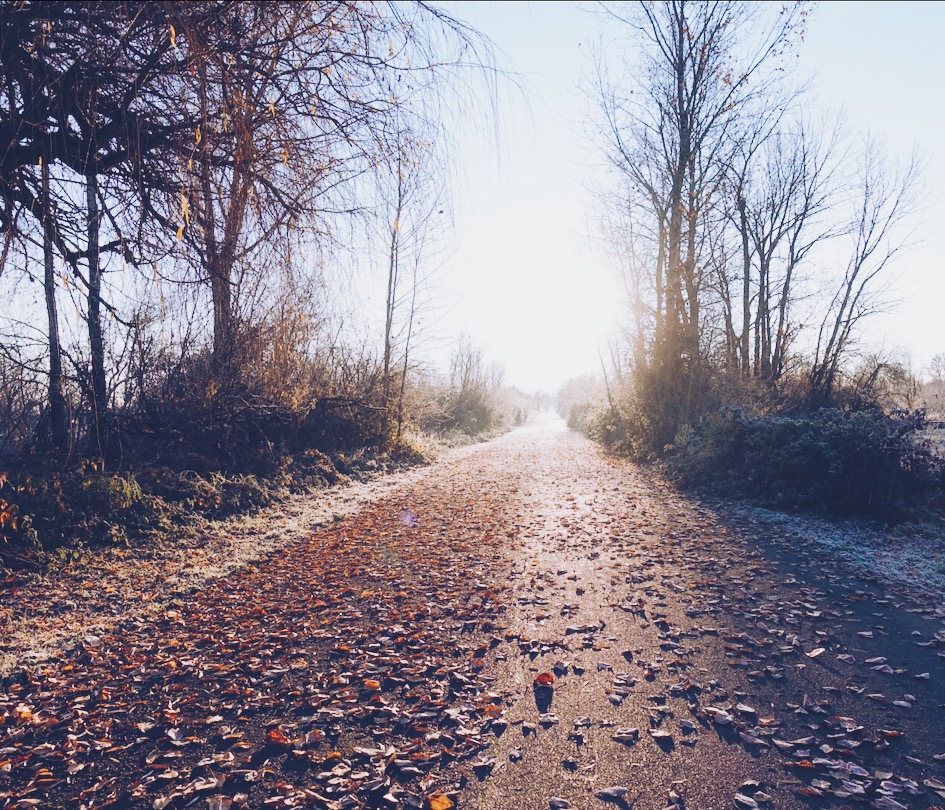The last couple of days I've given myself the outrageous pleasure of skipping the "usual order of things" and spending the first hour or two of the morning wrapped in a blanket, feet up, little electric fire going, tea in hand, reading. The rest of the house occupants are off to work or university so the house is deliciously quiet and still. This morning I was skimming through William Stafford's books on writing. I like his lack of pretentiousness. Ditch the need to seem intellectual, he says (in not so many words.) Just write out of your own place, out of your own expertise. I long ago decided that was the only way forward for me, I haven't any pedigree or experience that would enable me to write otherwise. My stories are mainly set in the Northwest, about the kind of people I grew up with, working class people. Some of them are curious and complicated, some of them stubborn, vicious, or unreasonably good. They're just ordinary people with ordinary encounters. You don't need to be an academic, or a diplomat, a scientist, or an artist to encounter betrayal, desire, failure, limits, freedom or forgiveness. All of these are readily mined from ordinary lives. But the world is a kind of grasping, upward thrusting place, and so I sometimes need to remind myself that I have stories worth sharing, that just because my place and my expertise lack a certain amount of cachet, it is still my own, and worth speaking from.
One of my Franciscan directives this year is "simplicity," and I've been thinking how much that word should really be tied to "humility." After all, it's often pride that drives us to own more, achieve more, do more. There's a certain lack of hubris required to be content with the old shoes, the good-enough house, the job title that sparks no one's interest. Saying no - to purchases/commitments/experiences/titles - requires a deep contentment and assurance that you are right where you need to be.
"It might help to be simple, and to listen," says Stafford in his marvelously spare way.
#
Today I have come to the coffee shop to write. Sometimes I need to shake myself awake, watch the people come in and out, hear snippets of real life conversations. Beside me a group of men are discussing tools - power saw, screwdriver, wrench - in absorbed detail. Behind me, a women's group is discovering self-comforting revelations in their well-used bibles. Strohl's Great Dramatic Sonata is playing in my headphones, but I am not interested in drowning everything out. I am training myself to be hardier, to write in a multitude of environments, under different kinds of pressure. More than that, I have come to watch and learn, for it is people who teach me to write, who teach me the tricks of conversation and mood, the gestures and tics that give characters life.
Novelist Elena Ferrante tells us that a writer's talent
...acts like a fishing net that captures daily experiences, holds them together imaginatively, and connects them to fundamental questions about the human condition.
Elena Ferrante
I love this image, for in my mind I see a morning river, a single boat, the casting of a glistening net over the rocking waves, the grateful gathering in of whatever has come along.
#
"You must revise your life," Stafford told aspiring poets (a take on Rilke's line), and I can feel this with some urgency. It's been a couple of years since I finished my first novel. It hasn't found a publisher yet, but I am not discouraged about that. The longer I write, the more I realize how many novels I will need to write before I come anywhere near to mastery. I want to strip my days down to only what is necessary for this growing, this maturing; take off the layers so I can get right down to the art. Lately, that urgency has been accompanied by the shimmer of fear. There are walled off places within myself, there are things to know about myself that I have yet to uncover.
#
The mood in the coffee shop has shifted with the noon light. The crowd has turned over, leaving a quieter mood, a flurry of tapping fingers as people settle into work. I am hungry for more than coffee, so soon I'll go home to the quiet and make my lunch, start working on the next part of my novel while the laundry spins in the washing machine tub. In this section of the story, I am trying to understand how a good person might make peace with someone who does not know how to love. It is a common problem. Sometimes I sit by the window and think of the people I know, the ways they have chosen to face that kind of thing, the ways they didn't. Just before I wrote this out, one of the women behind me said loudly, but with great tenderness,
"After all these years I am just trying to listen to him..."
I've collected this in my net, her words, her tone, and I will add it to all the other things I am just now learning to know.







